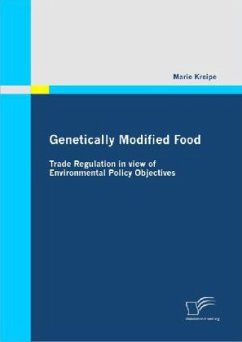The controversial issue of genetically modified (GM) food is discussed in this book. While the United States (US) is a strong supporter of GM technology having adopted a rather lax regulation of trade with GM products, the European Union (EU) is representing a sceptical position towards this new technology and has even imposed a de facto moratorium on further approval of GM products from 1998 to 2004. The purpose of this book is an extensive analysis of the current status on risks and benefits of genetically modified organisms (GMOs) and a suggestion on how an appropriate regulation of GM products could be derived. Potential guidelines are provided for policy formulation both in a qualitative and in a quantitative dimension. The US is applying the principle of substantial equivalence, which means that GM products are in their substance identical to products produced by conventional methods. Therefore, no new regulations are necessary for the trade with GM products. In contrast, the European Union (EU) disagrees that GM products are equivalent to their conventional counterparts due to the different production process. Instead, the EU refers to the precautionary principle in its GMO policy, meaning that trade with GM products should be restricted until it will be proven that no additional risks are implied by the use of these products. The divergence of opinions about the right policy to regulate GM products has significant impacts on trade flows and welfare effects. The US and the EU have already tried to resolve their dispute before the World Trade Organization (WTO). Relevant laws of the General Agreement on Tariffs and Trade (GATT) and the WTO are presented as well as indications for a potential consensus.
Hinweis: Dieser Artikel kann nur an eine deutsche Lieferadresse ausgeliefert werden.
Hinweis: Dieser Artikel kann nur an eine deutsche Lieferadresse ausgeliefert werden.








